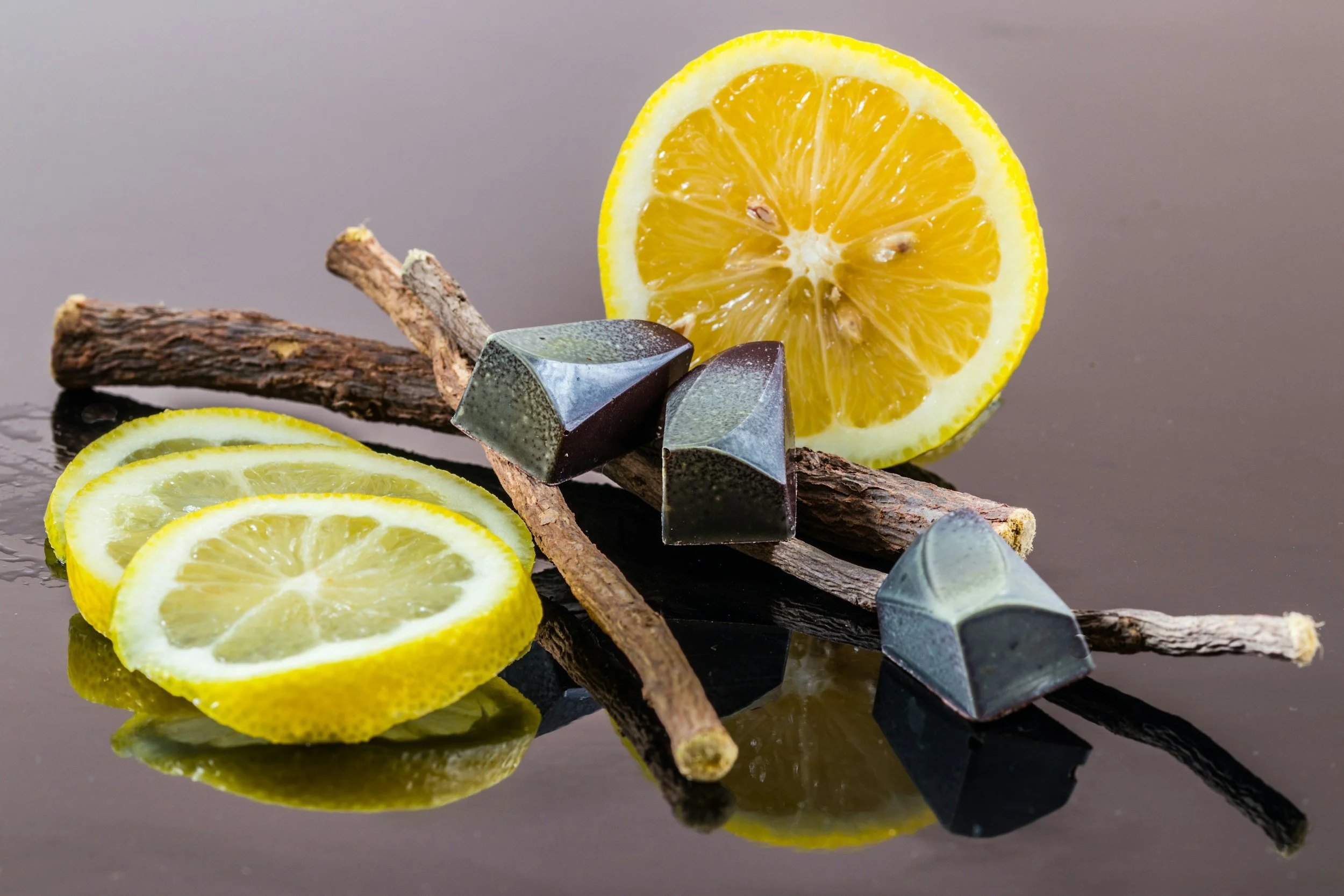The Middle Way in Buddhism: A Path to Balance and Enlightenment
In Buddhism, the Middle Way (or Majjhima Patipada in Pali) is a fundamental concept that represents the balanced approach to life, avoiding extremes and embracing moderation. It is a path of wisdom, ethical conduct, and mental discipline that leads to liberation from suffering and the attainment of enlightenment (Nirvana).
The Gift of Presence: How Your Presence Can Make a Difference
Ultimately, life is about being present for yourself so you can extend that presence to others. You don’t necessarily need to solve anyone’s problems; your presence is enough. When you are truly present with someone, it allows them to acknowledge their feelings and find their path to healing. You become a channel for their emotions, which is a meaningful form of support.
The Glucose Goddess Method: A Simple Way to Feel More Balanced
During lectures, I often pause to ask AI for deeper explanations of certain topics. Recently, one of those pauses led me to discover the Glucose Goddess Method by biochemist Jessie Inchauspé.
This method isn’t just for people managing blood sugar — it’s for anyone who wants to feel more stable and energized throughout the day:
More balanced energy
Fewer cravings
Less brain fog
Improved mood, skin, and hormone support
The Holistic Pharmacy: Essential Products for a Healthier Home
In the realm of holistic health, the philosophy revolves around treating the whole person rather than just symptoms. A holistic approach often incorporates natural remedies and lifestyle adjustments to promote overall well-being. Among the myriad of health-enhancing products available, five stand out for their versatility and effectiveness: Bragg’s Apple Cider Vinegar, Baking Soda for EMF Detox, Castor Oil from Premier Research Lab, Turmeric for Inflammation, and Spring Water. Each of these products plays a vital role in fostering a balanced and health-conscious household.
Embracing Intentions: The Heart of Meaningful Living
In our fast-paced world, the allure of to-do lists is undeniable. There’s a certain satisfaction in crossing off tasks, a little rush of accomplishment that fuels our productivity. Yet, I’ve found that while to-do lists can help us get things done, they often miss the deeper purpose behind our actions. That’s where the practice of setting intentions comes in—a powerful shift that can transform the way we approach our days and our relationships.
Dis-Ease and Ease: Returning to Wholeness
The word dis-ease reminds us that illness begins as a lack of ease. It’s not only about the body breaking down but also about the tension, stress, and disconnection we carry over time. If ease is so natural, why don’t more people simply relax?
Tea, Presence, and the Nourishment of Good Company
When we are with people who uplift us, our bodies relax. Stress hormones quiet down, our nervous system shifts into “rest and digest,” and our gut is able to do what it’s designed to do—absorb, assimilate, and restore. Joyful conversation, laughter, and authentic sharing all activate this healing state.
Why Saliva Is More Important Than You Think
When we think about saliva, we often dismiss it as just “spit.” But saliva is actually a powerful and essential part of digestion, immunity, and overall health. Here’s why keeping your saliva production healthy matters more than you might realize.
We Face Millions of Antigens Every Day—How Do We Stay Balanced?
Every single day, our bodies come into contact with millions of antigens. These are the substances that trigger an immune response—tiny proteins, microbes, toxins, pollens, even particles from the food we eat. Some antigens are completely harmless, some are beneficial, and others can be harmful.
When It Comes to Immune Balance, Digestion Is Where We Want to Focus Our Efforts
When most people think about strengthening their immune system, they picture supplements, vitamin C packets, or maybe a cold-weather routine. But if we want true balance—not just defense against the occasional bug but long-term immune resilience—we need to look deeper. And that starts in the gut.
How Digestion Affects Your Immune System: The Hidden Connection
When we think of immunity, we often picture white blood cells, vaccines, or supplements — but did you know that digestion is one of the most important players in your body’s defense system? A healthy gut doesn’t just process food; it protects you, communicates with your immune system, and even influences inflammation and mood.
Balancing Your Stomach Acid: Why It Matters and How to Do It Naturally
Acid reflux, heartburn, and bloating are common complaints, yet many people overlook the deeper reasons behind them. While we often think of stomach acid as “bad,” it’s actually essential for digestion, nutrient absorption, and even protecting our bodies from pathogens. The key is balance — too little or too much acid can cause problems.
North to South: How Digestion Starts in the Brain
When most of us think about digestion, we picture the stomach or intestines. But in reality, digestion begins before food even touches your lips. This is often called the north-to-south process of digestion—starting in the brain (“north”) and moving step by step through the body toward elimination (“south”).
Menstrual Cycles and the Moon: Finding Your Rhythm
It turns out that the Moon and menstrual cycles have been linked in traditions across many cultures, not only because they share a similar length (~29.5 days) but also because both represent cyclical renewal, growth, and transformation. Depending on when your cycle begins, you may find yourself aligning with one of four main menstrual-lunar archetypes.
Your Environment and Your Nervous System: Why Choosing Wisely Matters
When we think about health, we often focus on diet, exercise, or sleep. But there’s another, often overlooked factor that shapes our wellbeing profoundly: the environment we live in and the people we spend time with. Our surroundings do more than influence our mood—they directly affect our nervous system, our stress response, and even our long-term physical and mental health.
Breathe Your Way to Better Digestion: How Simple Breathing Supports Gut Health
When we think about digestion, we often focus on what we eat—fiber, probiotics, or balanced meals. But one of the most powerful tools for a healthy digestive system isn’t found in your pantry; it’s within your own body: your breath.
A Gentle Note on Rest and Returning to Yourself
✨ Why rest matters:
Rest is not a luxury, it is medicine. It supports so much of our healing:
It balances hormones and strengthens the immune system.
It allows digestion and detoxification to happen with ease.
It calms the nervous system, helping us release stress and anxiety.
It softens the grip of old emotions, making space for forgiveness and letting go.
It restores energy, creativity, and clarity so we can show up as our truest selves.
The Stress Solution by Dr. Rangan Chatterjee: A Summary & Key Takeaways
Stress is everywhere—but according to Dr. Rangan Chatterjee, it doesn’t have to rule our lives. In his book The Stress Solution, he offers a refreshing, holistic, and highly practical approach to managing everyday stress—one that blends science, lifestyle, and compassion.
Nature’s Way to Detox: Supporting Your Body’s Built-In Cleansing Systems
When most people think about “detox,” they imagine strict juice cleanses or expensive supplements. The truth is, your body already comes with a powerful set of detox systems — your liver, kidneys, gut, lungs, skin, and lymphatic system. These work together 24/7 to keep you balanced.
Reframe the Stress, Rewire the Response: What a 2012 Study Taught Us About Mindset
Stress is often cast as the villain of modern life. It’s blamed for poor sleep, burnout, anxiety, and even physical illness. But what if the way you think about stress could be just as important as the stressor itself?




















